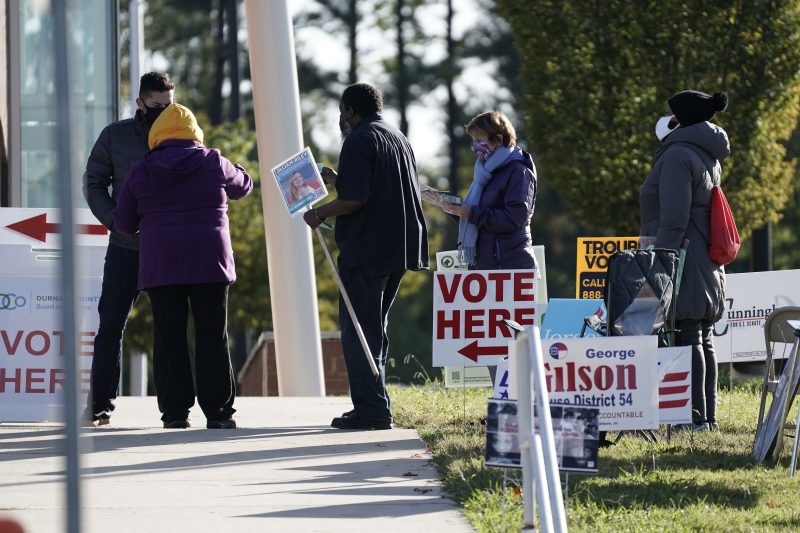The North Carolina Supreme Court on Friday struck down a state voter identification law, ruling that Republican lawmakers acted unconstitutionally to minimize Democratic voters’ power with a law that intentionally discriminated against Black voters.
“We hold that the three-judge panel’s findings of fact are supported by competent evidence showing that the statute was motivated by a racially discriminatory purpose,” Justice Anita Earls wrote in the 89-page ruling.
Senate Bill 824 required every voter to present one of a few specific forms of photo identification, a measure that the justices ruled was passed in part to discriminate against Black voters. Despite most voters having at least one of the forms of identification, the risk of having voters suppressed was very real, they said.
“The guarantee of equal protection of the laws means that a law enacted with the intent to discriminate on the basis of race is unconstitutional even if no voter ultimately is disenfranchised because ‘racial classifications of any sort pose the risk of lasting harm to our society,’” Earls wrote.
North Carolina voters backed a constitutional amendment requiring a voter ID law in 2018 before the General Assembly approved the legislation that December. But the law — which Gov. Roy Cooper (D) vetoed before the legislature overrode his veto — immediately became the target of lawsuits in both state and federal courts.
The case was decided 4-to-3 along party lines, with the court’s Democrats in the majority. Earls wrote about the importance of protecting voters rights by referring to a nearly 60-year-old case decided during the civil rights movement.
“The right to vote is a fundamental right, preservative of all other rights. If the right to vote is undermined, it renders illusory all ‘other rights, even the most basic,’” she wrote.
A trial court previously noted that North Carolina is both currently and historically racially polarized, given that most White voters back the GOP while the majority of Black voters support the Democratic Party. Both the trial court and Court of Appeals determined that this polarization “offers a political payoff” for lawmakers to limit the minority vote. The legislation aimed to target Black voters due to the likelihood of them opposing Republican candidates, the judges found.
“Although laws that limit African-American political participation have frequently been race neutral on their face, they have ‘nevertheless had profoundly discriminatory effects,’” Earls wrote. “Thus, equal access to the ballot box remains a critical issue in North Carolina.”
The judges ruled that the legacy of voter suppression in North Carolina continues to impact election outcomes even after efforts to expand voting rights have advanced. Voter fraud is so rare in the state that a less restrictive law would have been sufficient to address concerns about the lack of confidence in elections, they said.
The court argued that GOP leaders intentionally redrew North Carolina’s political districts in a way that significantly minimized the impact of Democratic votes in choosing congressional and state lawmakers.



























